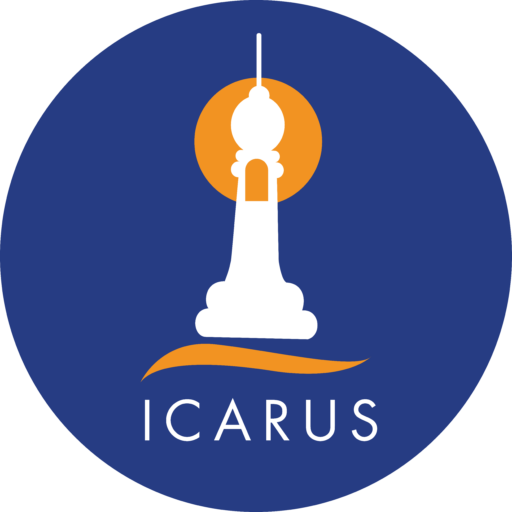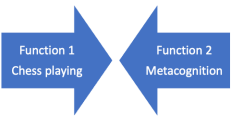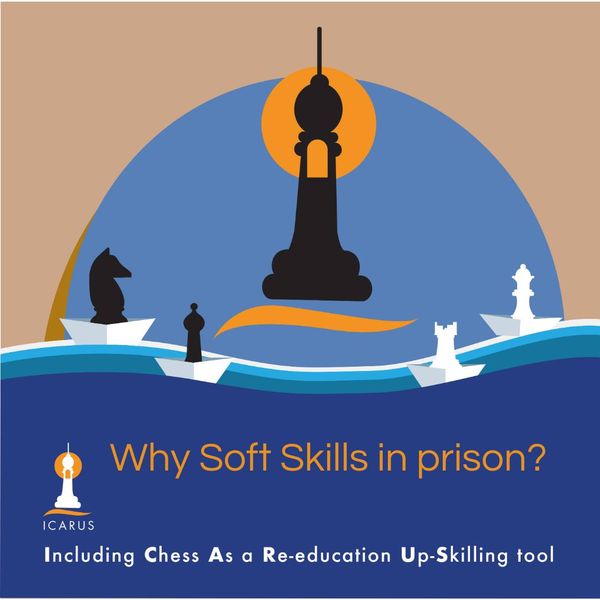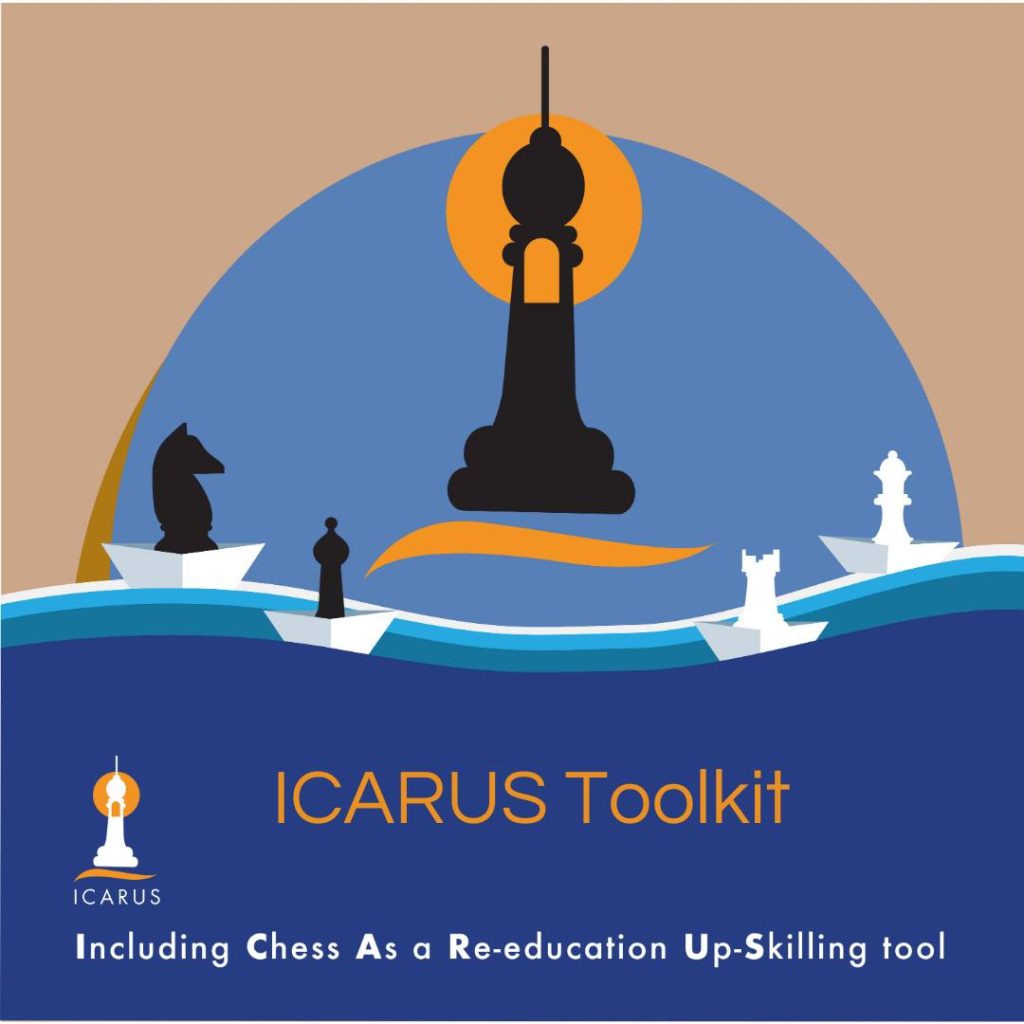Andreas Ahrens1, Jelena Zascerinska2, Anastasija Bikova3, Ludmila Aleksejeva4, Mihails Zascerinskis5, Olga Gukovica6, Irina Abjalkiene7
1 Hochschule Wismar University of Applied Sciences Technology Business and Design, Germany
2, 3, 4, 5, 6, 7 Centre for Education and Innovation Research, Latvia
Abstract. Chess game as a means of the enhancement of inclusiveness of disadvantaged groups is attracting more and more attention from chess federations, social workers, youth trainers, etc. The aim of this work is to analyse scientific literature to establish conceptual and theoretical inter-connections between disadvantaged groups’ inclusion, chess game, and metacognition. The present work relates to exploratory research. The methodology of the analysis in the present work proceeds from exploration through analysis to the formulation of a new research question. The method of literature review was applied in this work. Theoretical literature review was carried out. Novelty of this research lies in the establishment of conceptual and theoretical links to chess play as a means of individual’s metacognitive development for his/her social inclusion. The conclusion is that there exist conceptual and theoretical inter-connections between disadvantaged groups’ inclusion, chess game, and metacognition. The conceptual links extended the range of analysed concepts to five and change their order: disadvantaged groups’ inclusion, rehabilitation, personality, metacognition, and chess game. The algorithm includes the logical and sequential steps based on the established theoretical links: 1)Playing chess enriches individual’s metacognition. 2)Improved individuals’ metacognition increases this individual’s inclusiveness. Directions of further research are proposed.
Keywords: Chess play, conceptual links, disadvantaged groups, inclusion, metacognition, theoretical links, theoretical literature review.
To cite this article:
Ahrens, A., Zascerinska, J., Bikova, A., Aleksejeva, L., Zascerinskis, M., Gukovica, O., & Abjalkiene, I. (2024). Chess Play as a Means Of Improving Inclusiveness of Disadvantaged Groups. Education. Innovation. Diversity, 1(8), 134 – 142. DOI: https://doi.org/10.17770/eid2024.1.7928
Introduction
Chess game has been attractive for people for about 2000 years (Kazemi, Yektayar, & Abad, 2012).
Due to unique capabilities of chess game, chess play has become a means of development and upbringing (Romanova, Vasylieva, & Podberezskyi, 2018). The use and benefits of chess game in education is well acknowledged on the basis of research evidence revealed by scientific community in the field of
– Development of problem solving skills (Kazemi, Yektayar, & Abad, 2012), – Enhancement of mathematical problem solving ability (Sala, & Gobet, 2017), – Improvement of teaching and learning of mathematics (Tachie & Ramathe, 2022), – Increasing academic performance (Meloni, & Fanari, 2021), etc.
However, chess game as a means of the enhancement of inclusiveness of disadvantaged groups is attracting more and more attention from chess federations, social workers, youth trainers, and others.
It is worth noting that, by disadvantaged groups, groups of migrants, ethnic minorities, people with disabilities, isolated people, lonely elderly people, children, people from remote areas, people who face economic, social and/or cultural barriers, etc are meant.
Chess can improve inclusiveness for players with disabilities, allow the integration of the most fragile or excluded in a structured and rewarding universe, participate in improving the diet of players (especially young people) in the practice of the game, promote professional integration (Droin, 2024). Chess helps increase intellectual and social-emotional enrichment in schoolchildren for their better integration into school life (Aciego, García, & Betancort, 2012). Chess skills are recognised as an advantage in the individuals’ integration into labor market and into their further life roles, even at the highest management levels (Jankovic, & Novak, 2019). Chess players show better mental health of the nation (Jankovic, & Novak, 2019) that facilitates society integration processes. Chess play helps reduce communication disruptions in properties and types of attention, memory and thinking of the people with hearing impairments, thereby increase opportunities of those people with limited health capacities to improves their welfare (Mikhaylova & Makhov, 2018). Chess also has a therapy effect on those who have bipolar disorders, depression, ADHD and neuro-behavioral disorders; people with mental disorders; addiction patients; old persons with mild cognitive impairment and dementia (Romanova, Vasylieva, & Podberezskyi, 2018). Chess was also found to be a way of inclusion of prisoners in society and ultimately in the labour market, thereby promoting sustainability in wellbeing (Tomé, Godinho, & Lopes, 2023).
Inclusiveness can be affected by distortions or deficiencies in social information processing that may lead to maladaptive behaviour (Hariharan, Zaščerinskis, & Zaščerinska, 2015). Some of these and other barriers to inclusion can be mitigated via metacognition (Atkins & Doherty, 2022).
The aim of this work is to analyse scientific literature to establish conceptual and theoretical inter-connections between disadvantaged groups’ inclusion, chess game, and metacognition.
The present work relates to exploratory research. The methodology of the analysis in the present work proceeds from exploration through analysis to the formulation of a new research question. The method of literature review was applied in this work.
The novelty of this research lies in the establishment of conceptual and theoretical links to chess play as a means of individual’s metacognitive development for his/her social inclusion.
Methodology of the Research
The present research was based on literature review. Literature review was chosen due to its importance in any type of research. Literature review serves as the grounds for future research and theory (Snyder, 2019).
Theoretical literature review as a type of literature review was selected for the present work. Theoretical literature review is essential in research work for generating new frameworks and theories (Paré, Trudel, Jaana, & Kitsiou, 2015). The steps of theoretical literature review, adapted from Templier and Paré (2015), in the present work include
1. formulating the research question(s) and objective(s),
2. searching the extant literature,
3. screening for inclusion,
4. assessing the quality of theories,
5. extracting conceptual inter-connections, and
6. formulating theory.
Following these steps, the enabling research question is: Are there any conceptual and theoretical inter-connections between disadvantaged groups’ inclusion, chess game, and metacognition?
The objective of the theoretical literature review is to establish conceptual and theoretical inter-connections between disadvantaged groups’ inclusion, chess game, and metacognition.
Search for literature with the google was based on the use of the concepts “Disadvantaged groups’ inclusion”, “Chess game”, and “Metacognition”. Articles, that were selected for the literature review, are theoretical papers, review articles, and empirical studies articles (Ramdhani, Ramdhani, & Amin, 2014). Choosing literature with conflicting theoretical positions and findings along with the position or prediction empowers the analysis and synthesis for formulating the research findings (Ramdhani, Ramdhani, & Amin, 2014).
Screening for article inclusion into the theoretical literature review is based on the criteria, namely conceptual inter-connections between
– “Disadvantaged groups’ inclusion” and “Chess game”,
– “Disadvantaged groups’ inclusion” and “Metacognition”, and
– “Chess game” and “Metacognition”.
It should be noted that, by concept, a verbal abstraction drawn from observation of a number of specific cases (Watt & van den Berg, 2002) is meant. The method of conceptual links is widely used in Information and Communication Technologies (ICT) to perform clustering by using links among objects (Steinhaeuser & Chawla, 2010). The classical objective in ICT is to partition the network into several components (Stattner & Collard, 2012). In this work, identification of conceptual links is needed for the establishment of links between different theories. Theoretical links mean (Richardson, 2015) that
– The underpinning theory used in research can be a further source to link to similar types of study or to similar reasons for studying a phenomenon.
– Connection with existing evidence base is shown to give a clear indication that the current knowledge in regards to a topic, the way it is thought about in an academic sense, and the type of arguments people are making about it is familiar to the researcher.
– Convincing evidence from other published theorists/authors is used to build on. Figure 1 illustrates the logical chain of the implementation of the search for conceptual and theoretical links.
In the present research, identification of conceptual links is aimed at linking theories to build algorithms that maximize the effect on a phenomenon.
Identified conceptual inter-connections were structured and summarised via the implementation of content analysis (Zascerinska, 2022). Content analysis was based on the interpretation of the obtained material (Zascerinska, 2022). Researchers, who implemented the theoretical literature review, interpreted the revealed theoretical inter-connections (Ahrens, Purvinis, Zascerinska, Miceviciene, & Tautkus, 2018).
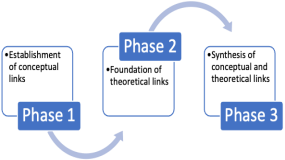
Figure 1 Phases of the establishment of conceptual and theoretical links (the authors)
Research Results and Findings
First, implementation of the methodology of the present research focused on the establishment of conceptual links between the concepts of
– “Disadvantaged groups’ inclusion” and “Chess game”,
– “Disadvantaged groups’ inclusion” and “Metacognition”, and
– “Chess game” and “Metacognition”.
It is worth noting that the search for conceptual links during the course of the implementation of the theoretical literature review has widened the links between the concepts of disadvantaged groups’ inclusion, chess game, and metacognition. Analysis of theoretical literature allowed constructing the logical chain of conceptual links reflected in Figure 2.
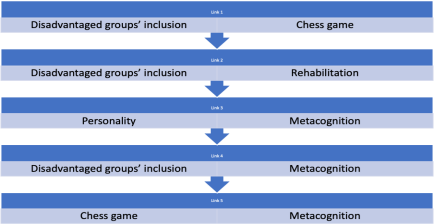
Figure 2 Extended links between the concepts (the authors)
Table 1 reveals inter-connections between the concepts shown in Figure 2.
Table 1 Inter-connections between the concepts (the authors)
|
Nr. |
Concepts |
Conceptual inter-connections |
Reference |
|
1 |
“Disadvantaged groups’ inclusion” and “Chess game” |
Chess is an interesting tool for the social integration of disadvantaged groups |
Tomé, Godinho, & Lopes, 2023 |
|
Chess is a means of rehabilitation |
Romanova, Vasylieva, & Podberezskyi, 2018; Ekizoǧlu, Yazici, Isik, Acet, & Gümüsgül, 2023 |
||
|
2 |
“Disadvantaged groups’ inclusion” and “Rehabilitation” |
The social rehabilitation practice of inclusion means providing social rehabilitation assistance to disadvantaged individuals in order to restore the socio psychological, value-based and behavioral components of personality and meeting the needs of socialization. |
Vasylyeva-Khalatnykova, Chuiko, Bakhov, Ternopilska, & Chernukha, 2021 |
|
3 |
“Personality” and “Metacognition” |
Metacognition is person’s internal orientation |
Lianguzova, 2021 |
|
|
|
|
|
|
Metacognition is thinking about thinking |
Chick, 2013 |
||
|
Thinking is a function of personality’s brain |
Singh & Singh, 2011 |
||
|
4 |
“Disadvantaged groups’ inclusion” and “Metacognition” |
Metacognition is the inclusivity mirror or, in other words, reflection |
Tolman, 2020 |
|
5 |
“Chess game” and “Metacognition” |
Chess play has the potential to increase metacognitive ability of individuals |
Kazemi, Yektayar, & Abad, 2012; Tachie & Ramathe, 2022; Meloni, & Fanari, 2021 |
|
Chess instruction affect metacognitive ability in a modest way. |
Sala & Gobet, 2017 |
||
|
Chess game is a more creative way of bringing up and adopting educational content to enhance metacognition |
Jankovic, & Novak, 2019 |
||
|
Adaptive chess training develops personal qualities, or, in other words, such metacognitive skills as logical thinking, that are professionally significant for individuals |
Mikhaylova & Makhov, 2018 |
After having established the conceptual links, this work intended to analyse theoretical inter-connections for the improvement of disadvantaged groups’ inclusiveness via chess game. It should be pointed that, by theory, a scientific explanation of a phenomenon is meant. Table 2 reflects theoretical links and their explanation defined in this research.
Table 2 Theoretical links and their explanation (the authors)
|
Nr |
Theoretical link |
Scientific explanation |
Reference |
|
1 |
Individual inclusiveness is based on the psychological system |
Psychological system means the development of the relationship between functions, e.g chess playing and metacognition. Important is a change in the relationship between functions, and not the development of each function as demonstrated in Table 3. |
Леонтьев, 1982 |
|
2 |
Psychological processes provide the basis for pedagogical developments |
Metacognition refers to psychology. Metacognition in psychology is known as “ability”. Learning to learn, including in chess playing refers to pedagogy. Pedagogical category of learning to learn means “skills” |
Ahrens & Zaščerinska, 2014 |
|
3 |
The science of metacognition |
Psychology |
Livingston, 2003 |
|
4 |
Individual’s inclusiveness is reflected by his/her metacognition |
Metacognition is the inclusivity mirror. Consequently, chess playing is the pedagogical reflection of inclusiveness |
Tolman, 2020 |
|
5 |
Increase of individual’s inclusiveness means the improvement of this individual’s metacognition |
Individual’s metacognition helps regulate his/her behavior on the basis of inferences about others’ intentions, dispositions, and actions |
Levesque, 2014 |
|
6 |
Thinking, as metacognitive ability, is a function of the brain |
It is the brain and nervous system which run the rest of the body and all its activities, including thinking and action in all their forms |
Singh & Singh, 2011 |
|
7 |
Metacognition, as the sum total of relevant brain functions, is the product of the mind |
Mind is the product of brain activities |
Singh & Singh, 2011 |
|
|
|
||
|
8 |
Mind originates from brain |
Brain is the producer, mind its product |
Singh & Singh, 2011 |
|
9 |
Brain is the head of the central nervous system |
The brain and the nervous system run the rest of the body and all its activities, including thinking and action in all their forms |
Singh & Singh, 2011 |
|
10 |
The science of the brain and mind |
Cognitive neuroscience |
Singh & Singh, 2011 |
|
11 |
Inclusiveness in cognitive neuroscience (the science of the brain) and cognitive psychology (the science of the mind) |
Mirror neurons provide the physiological mechanism for the perception/action coupling and for learning new skills by imitation. |
Ahrens, Purvinis, Zascerinska, Miceviciene, & Tautkus, 2018 |
|
12 |
Inclusiveness in chess play |
Mirror neurons in simulations/games help understand, explain, and predict others’ behaviour by individuals mentally putting themselves in the shoes of another person and imagining how they would feel and act in the given context |
Ramlakhan, 2012 |
|
13 |
Chess game, being a pedagogical tool, improves individual’s metacognition, thereby increasing individual’s inclusiveness |
Adaptive chess training develops metacognitive skills, that are significant for individual’s inclusiveness |
Mikhaylova & Makhov, 2018 |
This theoretical literature review allows finding out that there are conceptual and theoretical inter-connections between the concepts of disadvantaged groups’ inclusion, chess game, and metacognition.
The establishment of the conceptual inter-connections was based on the links found in the definitions of the concepts. These discovered links led the researchers to widening the key concepts from three to five: disadvantaged groups’ inclusion, rehabilitation, personality, metacognition, and chess game.
Table 3 Development of the relationship between functions as well as development of each function (the authors)
|
Development of the relationship between functions |
Development of each function |
|
|
|
The search for theoretical links was implemented on the basis of two sciences: psychology and neuroscience. Involvement of other sciences in the interdisciplinary research carried out in the course of this work could strengthen and extend the obtained theoretical links related to disadvantaged groups’ inclusion, metacognition, and chess game.
Discussion
The established theoretical links allow finding out that chess play may impact the improvement of individual’s metacognition, thereby increasing this individual’s inclusiveness. This finding is supported by existing empirical evidence (Kazemi, Yektayar, & Abad, 2012; Sala & Gobet, 2017; Mikhaylova & Makhov, 2018; Jankovic, & Novak, 2019; Meloni, & Fanari, 2021; Tachie & Ramathe, 2022). The carried out theoretical literature review can serve as a source to link to similar types of study or to similar reasons for studying a phenomenon.
Theoretical links allow building an algorithm that maximize the effect of individual’s inclusiveness via development of this individual’s metacognition in chess play. The algorithm includes the logical and sequential steps based on the established theoretical links presented in Table 2:
1. Playing chess enriches individual’s metacognition.
2. Improved individuals’ metacognition increases this individual’s inclusiveness. The theoretical literature analysis revealed in Table 2 prescribes the indicated sequence of the steps in the elaborated algorithm.
Conclusions
The research carried out within this work allows concluding that there exist conceptual and theoretical inter-connections between disadvantaged groups’ inclusion, chess game, and metacognition. The conceptual links extended the range of analysed concepts to five and change their order: disadvantaged groups’ inclusion, rehabilitation, personality, metacognition, and chess game.
Another conclusion, based on theoretical links and existing empirical evidence, is that chess playing positively effects individuals’ metacognition, and, consequently, increases this individual’s inclusiveness.
The research presented in this work is devoted to building an algorithm to maximize the effect of individual’s inclusiveness. The created algorithm contributes to the conclusion that improved individuals’ metacognition is a step forward to the increased inclusiveness of this individual.
Also, the conclusion on the basis of the implemented theoretical literature review has been drawn that chess play is an effective pedagogical tool to improve individuals’ metacognition, and, consequently, increase this individual’s inclusiveness. Chess play encompasses a wide range of metacognitive abilities and skills, e.g. individual’s problem solving, creative thinking, planning, strategic thinking, logical thinking, and others. The conclusion is also that the proposed sequence of the actions first focuses on
– the development of individuals’ metacognition, and, later,
– the enrichment of this individual’s inclusiveness.
The present research has some limitations. The conceptual and theoretical links between disadvantaged groups’ inclusion, rehabilitation, personality, metacognition, and chess game have been set. The present work was also limited by leveraging two sciences, namely psychology and neuroscience, for the establishment of theoretical links between disadvantaged groups’ inclusion, rehabilitation, personality, metacognition, and chess game. If other sciences had been found relevant, the other results related to the establishment of theoretical links would be obtained. A limitation is also that only theoretical methods were deployed in the present work.
Future theoretical analysis intends to include the interdisciplinary research with the involvement of other sciences than psychology and neuroscience. Further research intends to focus on the implementation of empirical studies. Another direction of future work includes the involvement of different groups of disadvantaged people into empirical studies to measure the effect of chess play on individual’s metacognition and inclusiveness.
Acknowledgement
The presented work has been carried out within the Project “Including Chess as a Re education Up-Skilling Tool” (ICARUS), KA220-ADU – Cooperation partnerships in adult education, Project Number 2023-1-IT02-KA220-ADU-000152409.
References
Aciego, R., García, L., & Betancort, M. (2012). Intellectual and Social-Emotional Enrichment in Schoolchildren. The Spanish Journal of Psychology 2012, Vol. 15, No. 2, 551-559 DOI: http://dx.doi.org/10.5209/rev_SJOP.2012.v15.n2.38866
Ahrens, A., Purvinis, O., Zascerinska, J., Miceviciene, D., & Tautkus, A. (2018). Burstiness Management for Smart, Sustainable and Inclusive Growth: Emerging Research and Opportunities. IGI Global. DOI: 10.4018/978-1-5225-5442-4.
Ahrens, A. & Zaščerinska, J. (2014). Students’ Attitude to Interdisciplinary Research. Society, Integration, Education. Proceedings of the International Scientifical Conference. Volume I: Higher Education Institutions Pedagogy, School Pedagogy, Pre-School Pedagogy. May, 23th-24th, 2014, pp. 13-23. – Rēzekne: Rēzeknes Augstskolas Izdevniecība, 2014. – p 616.. Retrieved from http://www.ru.lv/ckfinder/userfiles/RAweb/Saturs/zinatne/zinatniskie_instituti/personas_socializacijas_petijumu_instituts/izdevumi/2014/I_DALA.pdf .
Atkins, L. & Doherty, J. (2022). “But how and why does it “work”?: A primary school study into the impact of metacognitive strategies on disadvantaged learners. Retrieved from https://my.chartered.college/impact_article/but-how-and-why-does-it-work-a-primary-school-study-into the-impact-of-metacognitive-strategies-on-disadvantaged-learners/
Chick, N. (2013). Metacognition. Vanderbilt University Center for Teaching. Retrieved from https://cft.vanderbilt.edu/guides-sub-pages/metacognition/
Droin, F. (2024). ECU Social Commission Missions. Retrieved from https://social.europechess.org Ekizoǧlu, Ö., Yazici, N. A., Isik, U., Acet, M., & Gümüsgül, O. (2023). The rehabilitative effect of chess on the visually impaired. Loisir et Société / Society and Leisure, 46(2), 354–366. DOI: https://doi.org/10.1080/07053436.2023.2216592
Grant, M.J., & Booth, A. (2009). A typology of reviews: An analysis of 14 review types and associated methodologies. Health Information & Libraries Journal, 26, 91–108. DOI: https://doi.org/10.1111/j.1471-1842.2009.00848.x
Hariharan, R., Zaščerinskis M., & Zaščerinska, J. (2015). Learning the Concept of Human Brain Neuro Imaging in Social Cognition by Student Teachers in India and Latvia. The proceedings of Riga Teacher Training and Educational Management Academy’s 10th International Young Scientist Conference, pp. 15-23. Riga: Riga Teacher Training and Educational Management Academy.
Jankovic, A. & Novak, I. (2019). Chess as a Powerful Educational Tool for Successful People, In: Tipurić, Darko Hruška, Domagoj (Ed.): 7th International OFEL Conference on Governance, Management and Entrepreneurship: Embracing Diversity in Organisations. April 5th – 6th, 2019, Dubrovnik, Croatia, Governance Research and Development Centre (CIRU), Zagreb, pp. 425-441.
Kazemi, F., Yektayar, M., & Abad, A.M. (2012). Investigation the impact of chess play on developing meta cognitive ability and math problem-solving power of st https://doi.org/10.1016/j.sbspro.2012.01.056udents at different levels of education. Procedia – Social and Behavioral Sciences, 32, 372-379. DOI: https://doi.org/10.1016/j.sbspro.2012.01.056
Levesque, R. (2014). Social Reasoning. New York: Springer New York. DOI 10.1007/978-1-4419-1695-2_610. Lianguzova V. (2021). Personality and features of metacognition and perception of everyday life. European Psychiatry. 2021;64(S1):S442-S442. DOI:10.1192/j.eurpsy.2021.1180
Livingston, J.A. (2003). Metacognition: An Overview. Retrieved from https://www.researchgate.net/publication/234755498_Metacognition_An_Overview
Meloni, C. & Fanari, R. (2021). Does Chess Training Affect Meta-Cognitive Processes and Academic Performance?. In: Ifenthaler, D., Sampson, D.G., Isaías, P. (eds) Balancing the Tension between Digital Technologies and Learning Sciences. Cognition and Exploratory Learning in the Digital Age. Springer, Cham. DOI: https://doi.org/10.1007/978-3-030-65657-7_2
Mikhaylova, I. & Makhov, A. (2018). Using Chess Potential For Improving Welfare Of People With Limited Health Capacities. In I. B. Ardashkin, N. V. Martyushev, S. V. Klyagin, E. V. Barkova, A. R. Massalimova, & V. N. Syrov (Eds.), Research Paradigms Transformation in Social Sciences, vol 35. European Proceedings of Social and Behavioural Sciences (pp. 888-899). Future Academy. DOI: https://doi.org/10.15405/epsbs.2018.02.105
Paré, G., Trudel, M.-C., Jaana, M., & Kitsiou, S. (2015). Synthesizing information systems knowledge: A typology of literature reviews. Information & Management, 52(2), 183–199. DOI: https://doi.org/10.1016/j.im.2014.08.008
Ramdhani, A., Ramdhani, M.A., & Amin, A.S. (2014). Writing a literature review research paper: A step-by step approach. International Journal of Basic and Applied Science, Vol. 03, No. 01, 47-56. Retrieved from http://digilib.uinsgd.ac.id/5129/1/08IJBAS%283%29%281%29.pdf
Ramlakhan, N.E. (2012). A Philosophical Reflection on Mirror Neurons: How Mirror Neurons Support Simulation Theory. Retrieved from https://carleton.ca/cognitivescience/wp content/uploads/Ramlakhan.pdf
Richardson, S.K. (2015). What does it means to strengthen theoretical links? Retrieved from https://www.researchgate.net/post/What-does-it-means-to-strengthen-theoretical-links
Romanova, I., Vasylieva, M., & Podberezskyi, M. (2018). Chess therapy as a new trend in training of future social pedagogues. Journal of Physical Education & Sport, 2018, Vol 18, p1820. DOI: 10.7752/jpes.2018.s4266
Sala, G. & Gobet, F. (2017). Does chess instruction improve mathematical problem-solving ability? Two experimental studies with an active control group. Learn Behav 45, 414–421 (2017). DOI: https://doi.org/10.3758/s13420-017-0280-3
Singh, AR. & Singh, SA. (2011). Brain-mind dyad, human experience, the consciousness tetrad and lattice of mental operations: and further, the need to integrate knowledge from diverse disciplines. Mens Sana Monogr. 9(1), 6-41. DOI: https://doi.org/10.4103%2F0973-1229.77412
Snyder, H. (2019). Literature review as a research methodology: An overview and guidelines. Journal of Business Research, Volume 104, 333-339. DOI: https://doi.org/10.1016/j.jbusres.2019.07.039 Stattner, E. & Collard, M. (2012). Social-Based Conceptual Links: Conceptual Analysis Applied to Social Networks, 2012 IEEE/ACM International Conference on Advances in Social Networks Analysis and Mining, 25-29. DOI: 10.1109/ASONAM.2012.15.
Steinhaeuser, K. & Chawla, N. V. (2010). Identifying and evaluating community structure in complex networks. Pattern Recognition Letters, Volume 31, Issue 5, 413-421. DOI: https://doi.org/10.1016/j.patrec.2009.11.001 .
Tachie, S. A., & Ramathe, J. M. (2022). Metacognition application: the use of chess as a strategy to improve the teaching and learning of mathematics. Education Research International, 2022(1), 6257414. DOI: https://doi.org/10.1155/2022/6257414
Templier, M. & Paré, G. (2015). A framework for guiding and evaluating literature reviews. Communications of the Association for Information Systems, 37(6), 112–137. DOI: https://doi.org/10.17705/1CAIS.03706 Tolman, A. (2020). How Metacognition Can Foster Inclusivity in the Classroom. Retrieved from https://www.improvewithmetacognition.com/how-metacognition-can-foster-inclusivity/
Tomé, E., Godinho, C., & Lopes, A. J. (2023). Chess as a Way of Inclusion of Prisoners: A Portuguese Experience. In S. Gonçalves, P. Figueiredo, E. Tomé, & J. Baptista (Eds.), Developing Diversity, Equity, and Inclusion Policies for Promoting Employee Sustainability and Well-Being (pp. 257-269). IGI Global. https://doi.org/10.4018/978-1-6684-4181-7.ch014.
Vasylyeva-Khalatnykova, M. O., Chuiko, O., Bakhov, I. S., Ternopilska, V., & Chernukha, N. (2021). Social Rehabilitation Practices of Inclusion. In The Educational Process In Working With Children With Disabilities. Propósitos Y Representaciones, 9(SPE3), e1188. DOI: https://doi.org/10.20511/pyr2021.v9nSPE3.1188
Watt, J. H. & van den Berg, S. (2002). Research Methods For Communication Science. Retrieved from http://www.cios.org/readbook/rmcs/rmcs.htm .
Zascerinska, J. (2022). TVET Teacher Training in South Africa: Literature Review. Society. Integration. Education. Proceedings of the International Scientific Conference. Volume I, 295-304. DOI: https://doi.org/10.17770/sie2022vol1.6816
Леонтьев, А. Н. (1982). Вступительная статья. In: Л. Выготский. Собрание сочинений. Москва: Педагогика.
